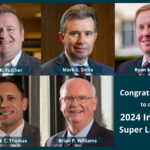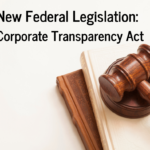The automatic stay, which comes into effect upon the debtor’s bankruptcy filing without the need for any court order, gives debtors a break by immediately halting all collection efforts and foreclosure actions. The automatic stay has been and continues to be one of the fundamental debtor protections provided by bankruptcy law. However, numerous questions remain regarding the law. One such question was recently answered by the United States Supreme Court—if a creditor has possession of seized property, does the creditor violate the automatic stay rule if the creditor maintains possession of the property after the debtor files for bankruptcy?
On January 14, 2021, the U.S. Supreme Court ruled in favor of the creditor in Chicago v. Fulton allowing it to retain possession of previously seized property. In Chicago v. Fulton, the City of Chicago impounded vehicles from individuals who failed to pay fines for motor vehicle infractions. Each member of the plaintiff class in the lawsuit against the City of Chicago filed for bankruptcy after their car had been impounded and request their vehicles be returned to them. The City of Chicago refused to return the impounded vehicles to the individuals, thereby leading the individuals to file a lawsuit against the City for allegedly violating the automatic stay rule.
While lower courts, including the Seventh Circuit Court of Appeals, ruled in favor of the individuals, the U.S. Supreme Court vacated the judgment and held that “merely retaining possession of estate property does not violate the automatic stay.” The Court wrote the “most natural reading” of the bankruptcy code is that it “prohibits affirmative acts that would disturb the status quo of estate property as of the time when the bankruptcy petition was filed.” The Court used this reasoning to rule that the automatic stay does not operate as an affirmative turnover obligation for creditors. It is worth noting Justice Sotomayor authored a concurring opinion to emphasize creditors may still be required to return repossessed property to debtors if the creditor holds the property for the purpose of extracting payment. Nonetheless, this Supreme Court ruling is a victory for creditors and will have an impact for car dealerships, banks, and credit unions that have repossessed property prior to bankruptcy filings.
For additional information regarding this or any related area of law, please contact any member of the KDDK business law practice team.




